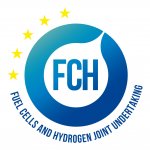Alessandra Landini joined the FCHgo coordination team at the Department of Education and Humanities, of UNIMORE in May this year. Her long-standing experience in teaching and researching narrative approaches in education, will add greatly to the implementation of the project.
To give an insight into why she joined the project, her current work in FCHgo and her research on the power of narrative in teaching she accepted to answer a couple of questions.
FCHgo: Alessandra, you are a part of the FCHgo team for more than two months now. To begin with, we would like to know more about what brought you to the project and your motivation to join the FCHgo endeavor.
First of all, I would like to thank you for giving me the opportunity to communicate how happy I am to be part of this project. The reasons that led me to participate in this venture were certainly the possibility of continuing my research and teacher training activities in the field of science education and the challenge of contributing to a European project that deals with environmental sustainability and alternative energy sources to fossil fuels.
Looking back on the past first months of FCHgo, what excites you most about the project?
Surely, we are entering a decisive phase, where the project is “growing up”: from the implementation of the website and the organization of the national and international competition, to the creation of educational materials that will constitute the fulcrum of field experiments in classrooms. Having worked a lot on the narrative-metaphorical approach to science and knowing its potential, I can’t wait to try the materials and carefully study their educational and training applications.
With the test phase of the FCHgo toolkit in lessons the project will reach an important milestone. Could you explain in greater detail what will happen in the test phase, for example, how the FCHgo materials are going to be evaluated?
These practice-orientated educational materials, created to foster awareness and knowledge about hydrogen fuel cells, will be tested in European classrooms and we will work, together with teachers, students and stakeholders, involved in the project, to explore the world of hydrogen. To evaluate the functionality of the materials and the concept, lessons will be analyzed from the quantitative and qualitative point of view, to scrutinize not only the actual acquisition of knowledge, but also the processes pupils have developed from the experiences. The aim is to offer experiences that establish a new vision of hydrogen as an energy vector and of the safety of its use in various fields. At the same time, however, stimulating scientific thinking means creating minds capable of diverging, of making creative proposals and of exercising a critical spirit: for this reason we will not only perform structured and semi-structured traditional tests and verifications, but we will pay attention to the skills learned and to the processes underlying the conceptualizations.
Last but not least, a question related to your research work: FCHgo makes use of a narrative approach to convey hydrogen energy. Can you briefly outline why and how narrative and metaphor stimulate human understanding?
Narratives, rich of metaphorical expressions, and experiences related to them (laboratory, meaning common research) have the power to bring out processes that work mostly invisible and unaware, because they almost always take effect underneath the horizon of consciousness. Using narratives means giving voice to the mind that constructs its own interpretation of the world, driving the negotiation of meanings and exploring shared spaces of thought. Here, meaning is constituted and structured. Furthermore, relying on emotionally significant experiences (stories always involve us emotionally and intellectually) and on investigative dialogue and exploration activities, students and teachers are challenged to discuss procedures and concepts, bringing the exchanges in class to a more in-depth comparison level of pupils’ competences and conceptualizations. In this narrative setting, metaphors can build a bridge between different worlds, different domains, fostering comprehension and facilitating the use of analogical reasoning. The ability to use conceptual metaphors allows human beings to map the experiential structure, from the “imaginative” realms of sensory-motor experience to non-imaginative (“abstract”) experiences.
Alessandra Landini: Portrait
Alessandra Landini, PhD in Human Sciences, is a teacher in primary school, teacher trainer and collaborator with the Centre for Metaphor and Narrative in Science. Her main research focus includes the use of narrative, metaphorical expressions and gestures in science education, the embodied cognition related to didactic methodologies from the kindergarten to secondary school and inclusive didactic. In her doctoral thesis she studied the approach to the study of energy in primary schools and the multi-metaphoric nature of the concept of energy.



